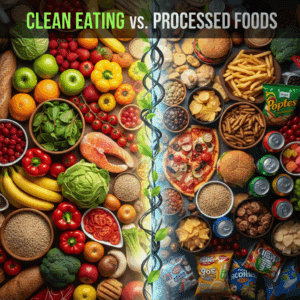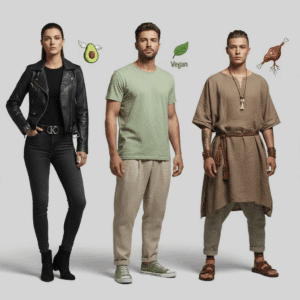Overview of Ethical Fashion Brands
Ethical fashion brands prioritize social and environmental responsibility throughout their production process. They emphasize fair practices and the use of sustainable materials to reduce industry harm.
These brands challenge conventional fashion by promoting transparency, worker welfare, and eco-friendly alternatives. Their commitment sets new standards for the global fashion industry.
Definition and Core Principles
Ethical fashion brands focus on respect for people and the planet. They ensure fair wages, safe working conditions, and sustainable resource use at every production stage.
Core principles include using organic or recycled materials, reducing waste, advocating transparency, and supporting community empowerment through fair trade practices.
Their mission often involves innovation to replace harmful processes with environmentally friendly methods that also promote social equity on a global scale.
Global Impact of Ethical Fashion
Ethical fashion brands influence global markets by encouraging sustainable consumer choices and shaping industry practices. Their efforts promote environmental protection and social justice worldwide.
They create positive change by partnering with artisans in developing countries, ensuring workers receive fair pay and dignity. This fosters economic growth in marginalized regions.
The transparency and accountability these brands offer empower consumers to make informed decisions that support ethical production, contributing to a more sustainable fashion future.
Profiles of Leading Ethical Brands
Stella McCartney’s Sustainable Innovations
Stella McCartney has pioneered the abolition of animal leather and fur in fashion, focusing on innovative, sustainable fabrics. Her brand collaborates with nonprofits to develop eco-friendly alternatives.
Her commitment to sustainability drives industry change by integrating cutting-edge materials and promoting ethical partnerships, reducing environmental impact across production stages.
People Tree’s Fair Trade and Community Empowerment
People Tree champions fair trade by working closely with artisans and farmers in developing countries, ensuring fair wages and dignified working conditions. Their products feature certified organic and recycled materials.
The brand empowers marginalized communities by supporting traditional crafts and fostering sustainable livelihoods, making transparency and social responsibility central to their mission.
Everlane’s Radical Transparency and Minimalism
Everlane leads with radical transparency, openly sharing the true cost of production and ensuring ethical factory conditions. The brand’s minimalist designs utilize sustainable fabrics with a focus on waste reduction.
This approach not only builds consumer trust but also promotes a streamlined, sustainable wardrobe concept that challenges fast fashion norms through honesty and quality.
Veja’s Eco-friendly Materials and Social Programs
Veja is renowned for using organic cotton and Amazonian rubber, combining environmental care with social responsibility. Their production practices assure fair pay and safe workplaces for all involved.
The brand maintains openness about its progress and challenges, inviting consumers to engage with the social and environmental impacts of their footwear choices.
Environmental and Social Commitments
Patagonia stands out for its unwavering dedication to environmental activism and corporate responsibility. The brand integrates sustainable materials with strong social initiatives.
Beyond product sustainability, Patagonia actively donates profits and mobilizes consumers to support global ecological causes, pushing the fashion industry toward meaningful change.
Patagonia’s Activism and Corporate Responsibility
Patagonia is a leader in environmental activism, using its influence to fund ecological projects and advocate for climate action worldwide. Their commitment extends far beyond conventional business practices.
The company adopts recycled fabrics and ethical supply chains, ensuring minimal environmental impact and secure, fair working conditions throughout production.
Patagonia’s dedication to transparency and community engagement fosters trust, making the brand a powerful example of how businesses can align profits with purposeful activism.
Consumer Influence and Industry Transformation
Consumers increasingly demand fashion that reflects ethical values alongside style. This shift drives brands to innovate, prioritize sustainability, and adopt transparent practices.
By aligning their purchases with social and environmental responsibility, consumers empower ethical brands, fostering market transformation toward more sustainable industry models.
Combining Style with Ethical Values
Modern ethical brands prove that fashion can be both stylish and responsible. Designers integrate sustainable materials with appealing aesthetics, rejecting the notion that eco-friendly means sacrificing style.
This blend attracts conscious consumers who seek garments that express their values without compromising on trends or quality. Ethical fashion now offers choices that are elegant and environmentally sound.
As a result, the market expands with innovative designs that respect the planet, promoting widespread adoption of sustainable practices while meeting consumer desires for distinct, fashionable products.
Impact of Choosing Ethical Fashion
Choosing ethical fashion reduces environmental damage by supporting brands committed to fair labor, waste reduction, and sustainable sourcing. Each purchase contributes to positive social impact.
Consumer demand encourages companies to increase transparency and improve conditions throughout their supply chains. This creates a ripple effect that elevates standards industry-wide.
Ultimately, embracing ethical fashion helps shift the industry from fast, exploitative models to long-term sustainability, benefiting ecosystems, workers, and communities globally.






